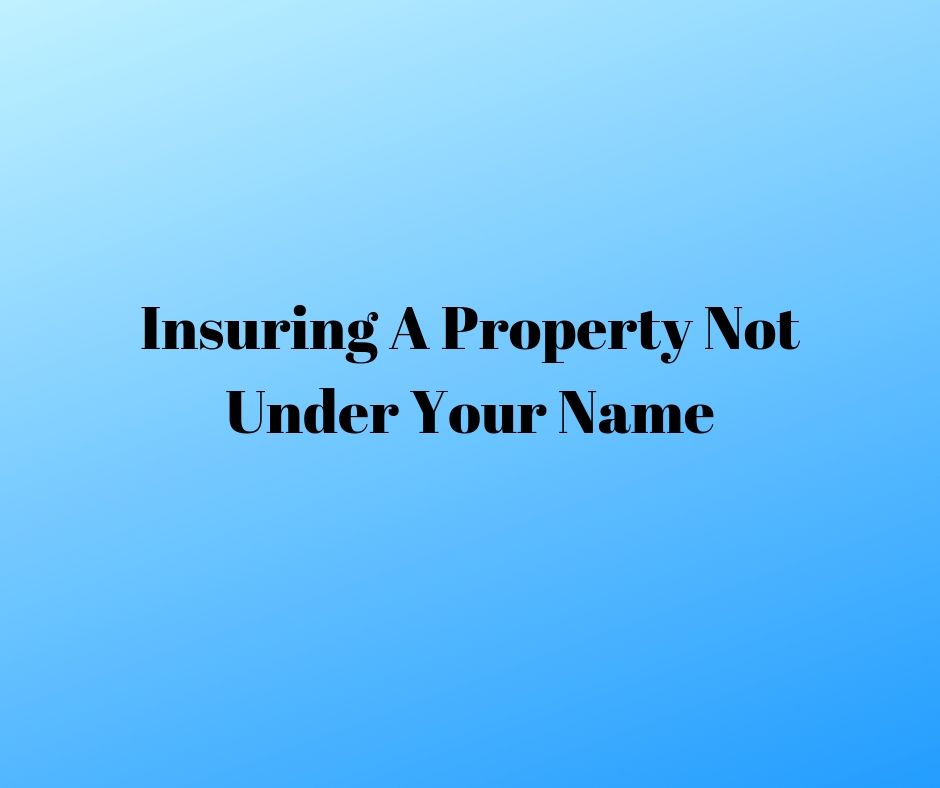Home insurance is a touchy subject for some. Many don’t even fully understand what is truly covered by their policy. A common question people ask, however, and can never get an exact answer to is: are you legally allowed to get insurance for a property that is not under your name?
Short answer: yes.
Long answer: keep reading.
Insuring A Property Not Under Your Name
There are a couple of ways to insure a property that is not under your name. The first would be to open up an LLC or another form of corporation where you share an interest in the property and also are part-owner of the company. If the property is held by the business, then you can get it insured by the business. This is a relatively simple process and is similar to insuring an asset normally.
The second way to go about insuring a property that is not in your name is to actually take an insurance policy out for it. An insurance company will allow you to take out a policy for a property that you are not on the deed for or living in if you can prove you have interest in the property. That is very important. They will not just let you insure any and every property. You have to prove that you are helping to keep the property in the best shape as possible.
This doesn’t have to directly mean you are the one mowing the lawn or raking the leaves, but it does mean that you have to ensure that the house is compliant with all of the insurance policy’s rules and guidelines. Basically, the insurance company wants to see that you have the house’s best interest in mind. If you can prove that then they will likely allow you to take out a policy.
A good example of proof to show to an insurance company would be a personal contract between you and the actual homeowner that shows you exchanged money to the homeowner so they could buy the house. However, you own part of the house until they pay you back.
All that said, a lot of insurance companies try to avoid this due to the hassle of litigation surrounding the idea of suing someone who doesn’t actually own or live in the property. Many states have made this exact scenario illegal because of the complexity of it.
If you are looking to do this to help out a friend or loved one, it would definitely be easier to just have the actual homeowner open up the policy and then you give them the money for the premiums. This would help you avoid all of the legal issues around insuring a property you don’t own.
Final Thoughts:
Whether you are trying to help out a family member or just trying to use your LLC for insurance on your property, there is a method out there that will work for you. It is just a matter of some digging and talking to some qualified insurance reps. Remember that they are trying to make money too, so you do not have to go with anything they say – you are just talking to them to learn and hopefully purchase a policy in the future.
Have you ever insured a property that is not in your name? If so, let us know in the comments!
If you liked this article, check out more recent ones below!




Pingback:An Honest Review of Bestow Insurance - Dual Income No Kids | Dual Income No Kids
Pingback:Repercussions of Dual Employment - Dual Income No Kids | Dual Income No Kids
Pingback:Should Spouses Be Held Accountable For Business Debt? - Dual Income No Kids | Dual Income No Kids